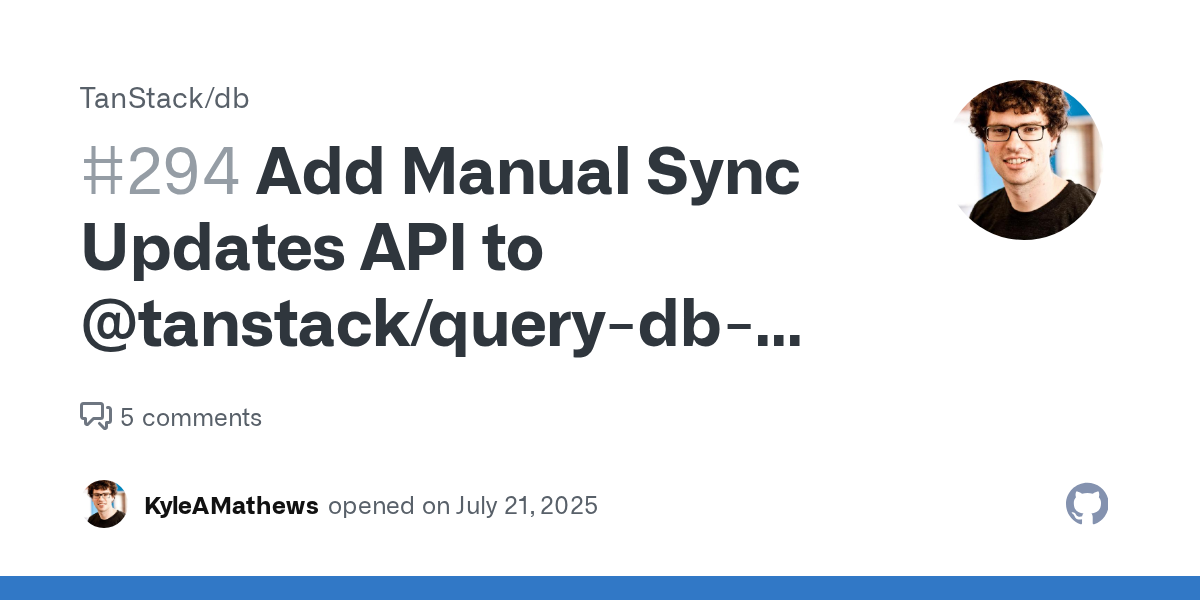Pattern: Populating a collection "as needed" with multiple Queries throughout app - no "base" query.
This thread explores using various
We don't want to force the user to load entire db tables since 95% of the time they will only use a small % of them. We do want to progressively build up a store and use it's querying methods to performantly select from the data that has been fetched.
As of 7/31 we have "manual sync update methods" per this issue: https://github.com/TanStack/db/issues/294
Though I'm not certain that quite addresses our goal, as it still seems to require the collection to be build on a default query. Within our app, we can't be certain which query will be called upon first to begin populating a given collection.
In theory I'd like to do this:
...with the hope that it would update any records with a matching key (unique ID), and insert any new records.
I'm already seeing a few related questions/issues/discord messages around a similar topic, so hopefully this thread can be a good centralized place to discuss the optimal approach for this. Pinging @Kyle Mathews since he helpfully pointed out the manual sync update.
useQueryWe don't want to force the user to load entire db tables since 95% of the time they will only use a small % of them. We do want to progressively build up a store and use it's querying methods to performantly select from the data that has been fetched.
As of 7/31 we have "manual sync update methods" per this issue: https://github.com/TanStack/db/issues/294
Though I'm not certain that quite addresses our goal, as it still seems to require the collection to be build on a default query. Within our app, we can't be certain which query will be called upon first to begin populating a given collection.
In theory I'd like to do this:
...with the hope that it would update any records with a matching key (unique ID), and insert any new records.
I'm already seeing a few related questions/issues/discord messages around a similar topic, so hopefully this thread can be a good centralized place to discuss the optimal approach for this. Pinging @Kyle Mathews since he helpfully pointed out the manual sync update.
GitHub
Background The @tanstack/query-db-collection package integrates TanStack Query with TanStack DB collections, providing automatic synchronization between query results and collection state. Currentl...
